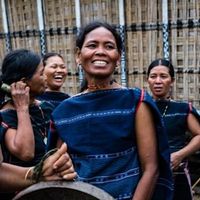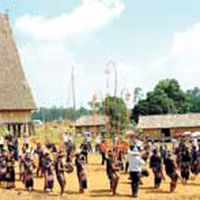Taking a People Centred Approach to Cultural Heritage
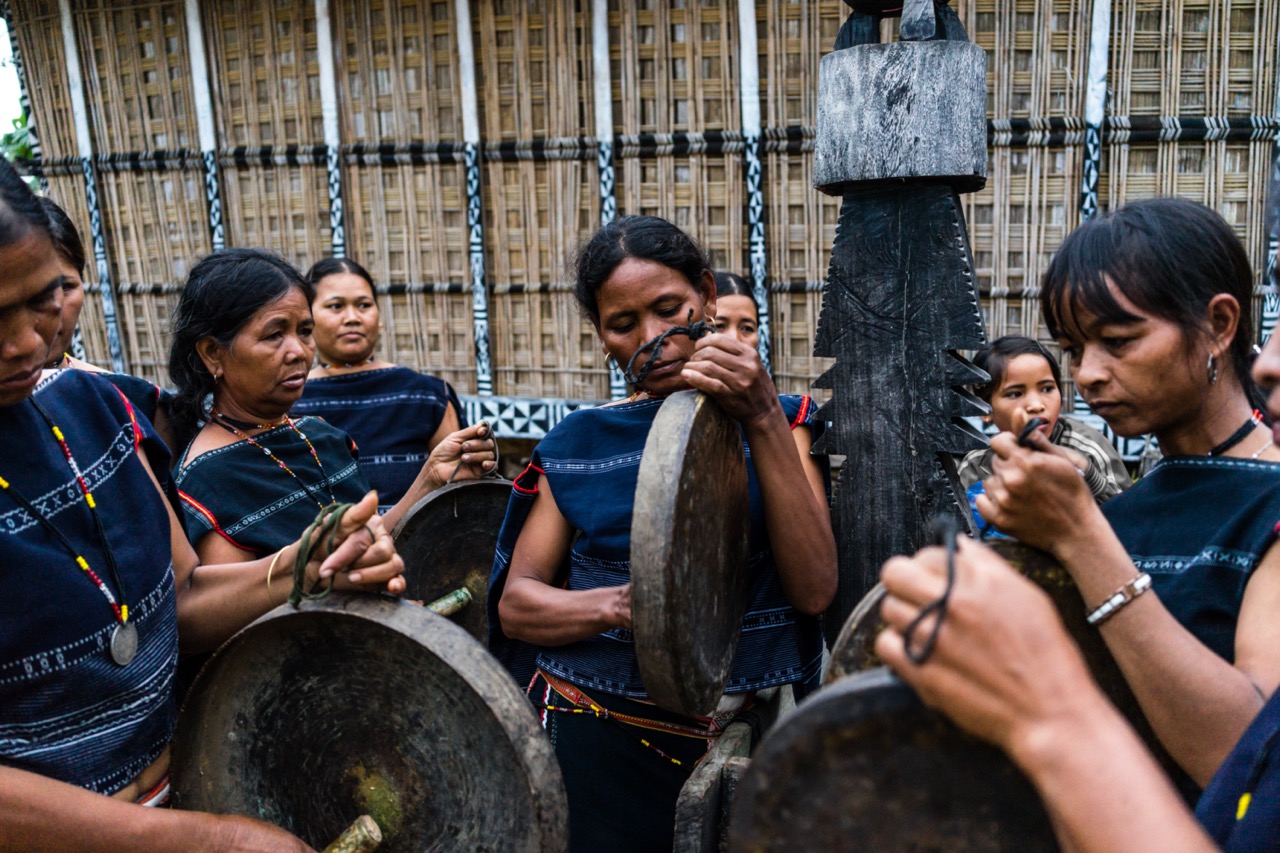
As part of culture360's ongoing Call for articles 2023, Ian Thomas and Nikki Locke draws insights from the British Council's Cultural Heritage for Inclusive Growth programme, to look at what cultural heritage for inclusive growth looks like in the context of Viet Nam. What are some key takeaways and practical approaches from the programme?
Cultural Heritage for Inclusive Growth and The British Council
The British Council’s Cultural Heritage for Inclusive Growth report in 2018 explored the concept that cultural heritage could contribute to inclusive growth. Inspired by the report, Cultural Heritage for Inclusive Growth is an action research programme that puts into practice the theory from the report. With projects delivered in Colombia, Kenya and Viet Nam, as well as by the United Kingdom (UK), Cultural Heritage for Inclusive Growth aims to create inclusive and sustainable growth through valuing, learning, protecting and sharing local cultural heritage.
The programme adopts a cultural relations approach to facilitate the exchanges and collaborations among local cultural heritage stakeholders and between the UK and countries overseas, based on mutuality and co-creation. The programme explores how cultural heritage can act as a catalyst for change and strengthen the British Council’s ability to enable longer-term conditions for inclusive and sustainable growth in different cultures, communities and countries.
This programme also includes working with International Centre for the Study of the Preservation and Restoration of Cultural Property (ICCROM) and its partners on a project aimed at understanding how the conservation and management of built heritage can support the overall well-being of communities in Southeast Asia by contributing to inclusive growth. It involves sharing the field experiences of heritage institutions, NGOs, civil society organisations, professionals and researchers from the region and the UK.
Taking a People Centre Approach
The core way of working within the programme is people-centred, an approach that includes an ethos of promoting wider inclusion, diversity and creating value to generate growth and prosperity as felt by those closest to their cultural heritage, a broad range of stakeholders, the population and the wider ecosystem. It is underpinned by these principles: inclusive, participatory, sustainable, building capacity, influencing policy, far-reaching, locally led and mutual.
The Cultural Heritage for Inclusive Growth people-centred approach is implemented based on a series of core elements:
- The ultimate objective is driven by needs and benefits brought to communities (for example, in the case of cultural heritage, this is about improving people’s quality of life, not preservation for the sake of beauty or symbols)
- End-users have a direct say in decision-making, and they take part in every stage of the project (from inception to processes and end products)
- The involvement of different people, with diverse backgrounds and points of view
- A non-prescriptive and agile approach, leveraged by active listening and the ability to respond to different and evolving needs
In Viet Nam, the in-country Cultural Heritage for Inclusive Growth project – known as Heritage of Future Past – works with music and film heritage, in particular valuable aspects that are under-represented or at high risk of disappearing.
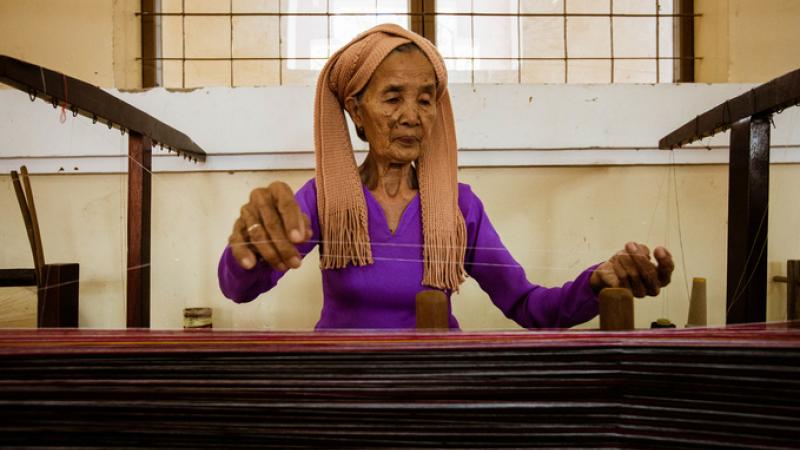
1. A senior artisan demonstrating skills while weaving traditional patterns on a long loom in Mỹ Nghiệp, Ninh Thuận province, March 2022 © British Council
Music and film heritage – especially that of or representing marginalised groups, including ethnic minority groups located in remote, rural areas – are becoming increasingly less visible in Viet Nam’s contemporary culture and society, against the backdrop of overwhelming economic growth. Within this context, efforts in safeguarding valuable and at-risk intangible cultural components have received very little attention and support. The situation affects the capacity of communities surrounding said components to develop their human capital and contribute to the development of the country.
By employing innovative approaches that enable a variety of communities to contribute to and benefit from the safeguarding of intangible cultural heritage, Heritage of Future Past seeks to create inclusive and sustainable growth opportunities in the heritage sector.
For example, Mo H’ra village is located in Kông Lơng Khơng commune with a majority of its people representing Bahnar ethnicity. According to the village elders of Mơ H’ra village, in recent years many agricultural rituals accompanied by gongs have become rarer. Traditionally, these elders used to teach gong playing to young people verbally and they would then listen and memorise it to prepare for big ceremonies, commune and district festivals, village funerals and weddings.
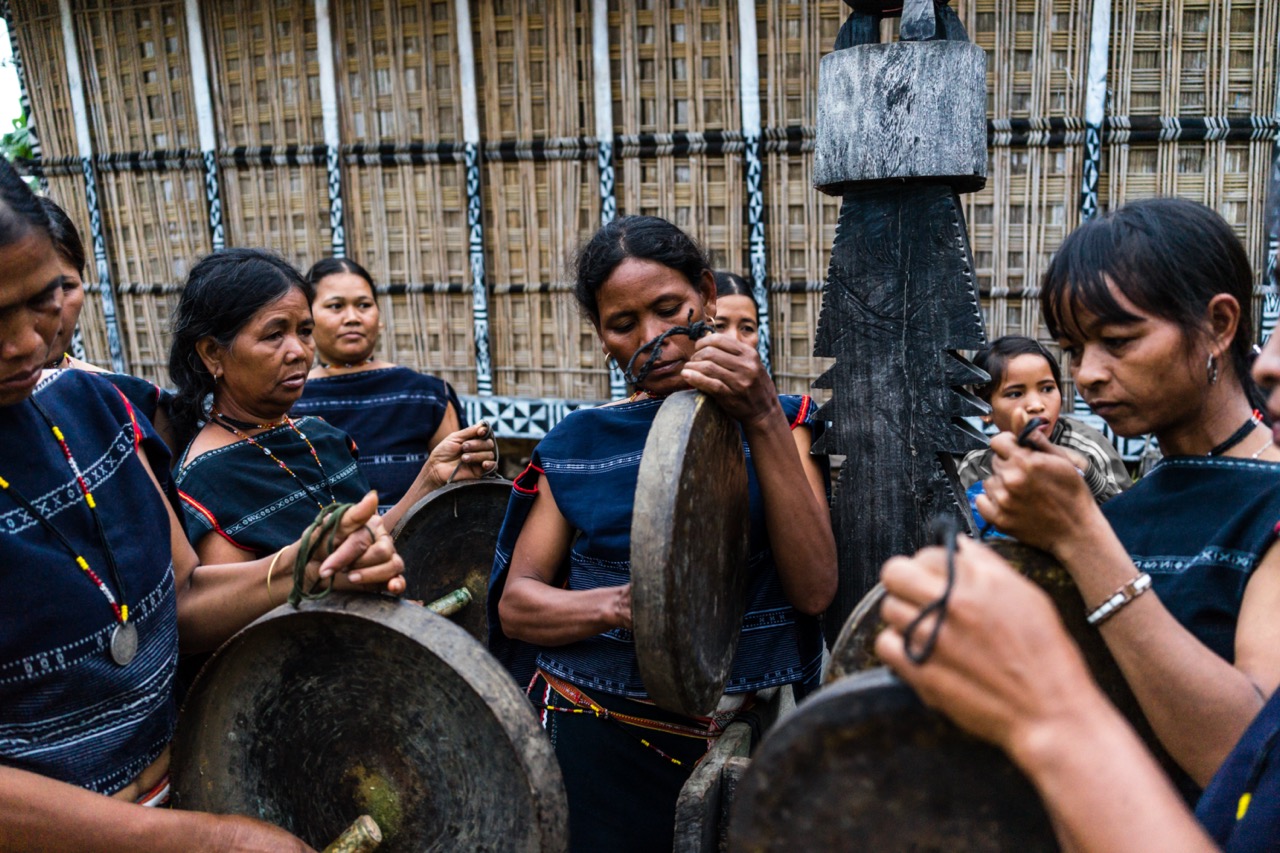
2. The Bahnar women playing gong at a local festival in Mo H’ra village © Le Xuan Phong
Over the two years, Viet Nam Institute for Culture and Arts studies worked with Mơ H’ra villagers, led by their respected elders, to design and conduct training, which enabled people to recognise their valuable heritage assets and have appropriate behaviours and actions in protecting them. Village leaders organised a community meeting to discuss ways to maintain gong culture in their village, as well as to develop new livelihoods surrounding it. They agreed that heritage could help improve local development, which resulted in the building of a small museum, a space for honouring the gongs and other heritage and traditions of the community.
As plans to become a site for cultural tourism were actioned by villagers over the two years, giving people opportunities to practice gong playing and offering locally produced food for visitors, Mơ H’ra became a model for neighbouring villages to follow. The community leaders/elders, being supported by the local partner, were thus able to change how people viewed gong culture, which inspired them to take ownership of safeguarding gong culture in their communities. This change in perception in turn also helped to achieve the outcomes of the programme.
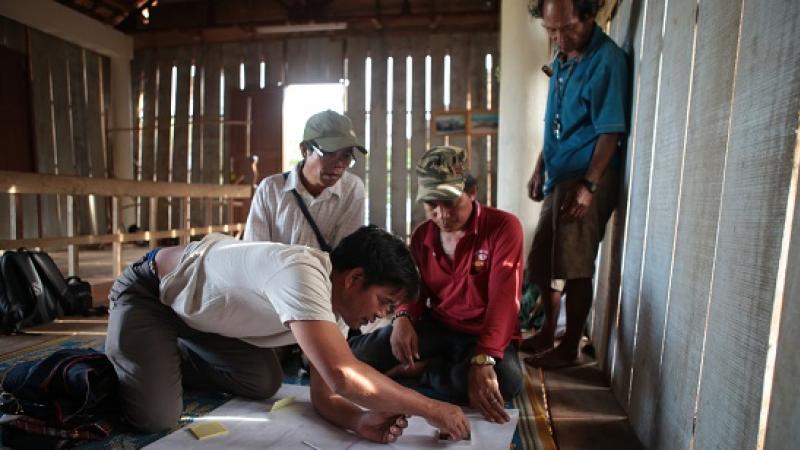 | 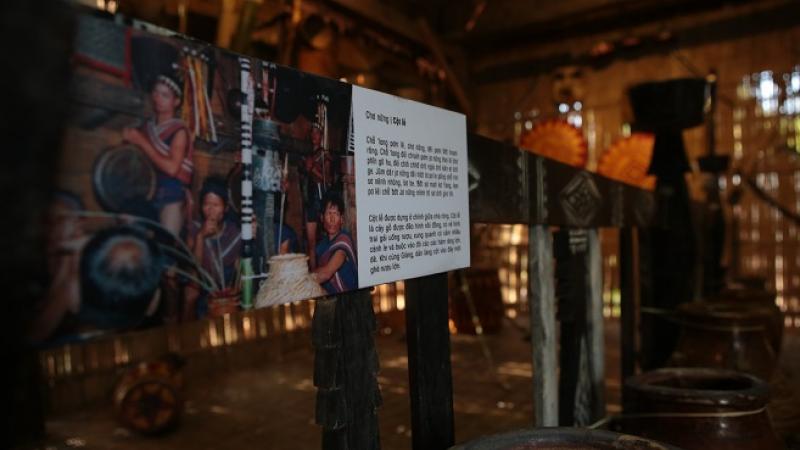 |
3. The community museum project © Cao Trung | 3. The community museum project © Nguyen Duc Tang |
The Link to Our Cultural Relations Work
The British Council’s people-centred ways of working to influence cultural heritage encourages relationship-building between the UK and overseas countries and among overseas communities. This approach can create enabling conditions for overseas cultural heritage sectors to thrive socially and economically, as well as facilitate meaningful exchanges and connections between the UK and overseas countries.
This programme has fed into and supported the development of the UK/Viet Nam Season. The Season commemorates both the 50th anniversary of diplomatic relations and the 30th anniversary of the British Council's presence in Viet Nam. Through our shared heritage theme of the Season, it has created contemporary dialogues and stimulated new narratives, which can draw inspiration from our shared history and forge a stronger bond between both countries.
Cover Image: The Bahnar women playing gong at a local festival in Mo H’ra village © Le Xuan Phong
References for further reading
For further information on the Cultural Heritage for Inclusive Growth programme, visit the website.
Find out more about Heritage of Future Past - Community Cultural Heritage in Gia Lai Province here.
About the Author
Nikki Locke is the Senior Relationship Manager for Culture Responds, supporting the British Council’s work in arts and culture for sustainable development. She brings over 15 years’ experience of developing strategies and delivering programmes in the UK and internationally which enhance the role and value of culture across society in a people-centred, inclusive and sustainable way.
Ian Thomas, Head of Research and Insights, Arts, British Council, leading on the evidence and learning from across the British Council’s global arts programmes including the development of a What Works Approach to Cultural Heritage Protection. Ian has over 20 years’ experience in working across a range of arts and cultural organisations, a former Visiting International Research Fellow at the University Southern California and is a Fellow of the Royal Society of Arts.
Similar content
from - to
10 Oct 2023 - 10 Oct 2023
posted on
08 Oct 2010
deadline
05 Feb 2023
posted on
22 Mar 2018
30 Nov 2015 - 21 Dec 2015
posted on
21 Nov 2018

